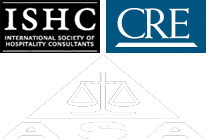Hotel Branding: The Future is Soft
By : admin | Category : General | No Comments
17th Dec 2014
Hotel branding is entering into a bold new age, leaving behind the real estate-heavy nationally-branded chains of the past in favor of Internet- and App-based marketing strategies that elevate smaller, independent hotels to the same access and visibility as their larger and more recognizable siblings.
This has led to the rapid rise of so-called “soft brands” in the hotel business. Soft branding is a flexible and effective strategy for smaller and independent hotels, as it allows for a combination of retained independence and superior service and stability of back office systems—not to mention access to the millions of members in the branding company’s loyalty program.
The Soft Brand
Soft branding differs from traditional hotel branding in that a small, independent hotel retains its current hotel branding in terms of name, reputation, and history, while partnering with a national or international hotel management chain. This allows it to have the best of both worlds–marketing leveraged from its unique history and public perception (and possibly famous name), while having a reservation or other services branded with a recognizable and thus trustworthy corporate identity.
Hotel Branding Advantages of Soft
From a branding perspective, soft branding has few disadvantages. Because the branding of these backbone services is soft, changing providers or affiliations has few negative consequences for the hotel itself, which maintains its traditional identity and overall brand. At the same time, they instantly upgrade their services and reservation systems to a national or international level, backed by a robust and large-scale infrastructure.
Customers find the combination appealing, as they still get the small scale and local experience of staying in a historic or well-known hotel in a specific city or area, but also enjoy the efficient and reliable service of a national chain. And being able to earn reward points with the parent brand is a plus.
Archives
Categories
Recent Posts
- Help with Due Diligence with Hotel Development Consulting in California
- How a Non-Lawyer Hotel and Real Estate Arbitrator in California Helps
- Valuation Methods from Hotel and Real Estate Appraisals in California
- What Has Your Resort Development Expert in California Done for You Lately?
- Essential Elements of Hotel Concession Contracts in California



